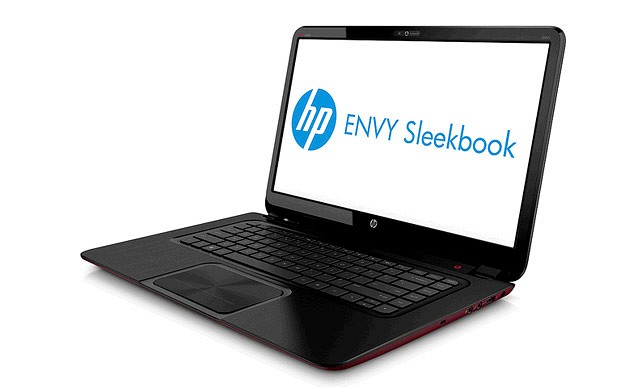AMD, the processor manufacturer, has announced the new chipset that it hopes will rival Intel's Ivy Bridge processors. The HP Envy Sleekbook will be powered by AMD's Trinity processor.
The HP Envy Sleekbook will be powered by AMD's Trinity processor. The new A-series chipsets, codenamed Trinity, will be used in thin and light laptops that will compete with Intel-backed ultrabooks, AMD says.
The company says Trinity-powered ultrathin laptops will be significantly cheaper than ultrabooks. The first to go on sale, in June, will be a 'Sleekbook' from Hewlett Packard.
Trinity will allow improved battery life for laptops because it can be set to draw around half the minimum power requirement of AMD's previous chipset, Llano.
Chris Cloran, corporate vice president of AMD, said: “Our 2nd-Generation AMD A-Series APU is a major step forward in every performance and power dimension, allowing users to enjoy a stunning experience without having to give up the things that matter to them most."
Intel will release its new Ivy Bridge chipset for ultrabooks next month. The current generation of ultrabooks, which began to go on sale at the end of last year, run on Sandy Bridge processors.
AMD's Trinity chipset will also be available for standard laptops and desktops. AMD claims that Trinity desktops have a 20-50 per cent better graphics performance for gamers than Intel's comparable Ivy Bridge processor.
Intel's Ivy Bridge processors measure just 22 nanometres across, which gives the potential for faster operations using less power. AMD's Trinity chipset, however, is still manufactured using the 32 nanometre process.
AMD says consumers care about performance and the overall experience, rather than the nanometre size of the processor.
Both Intel and AMD face growing competition from Arm, the Cambridge-based company that has so far dominated the mobile processor market.
Sourced From:
http://www.telegraph...to-tackle-Intel.html